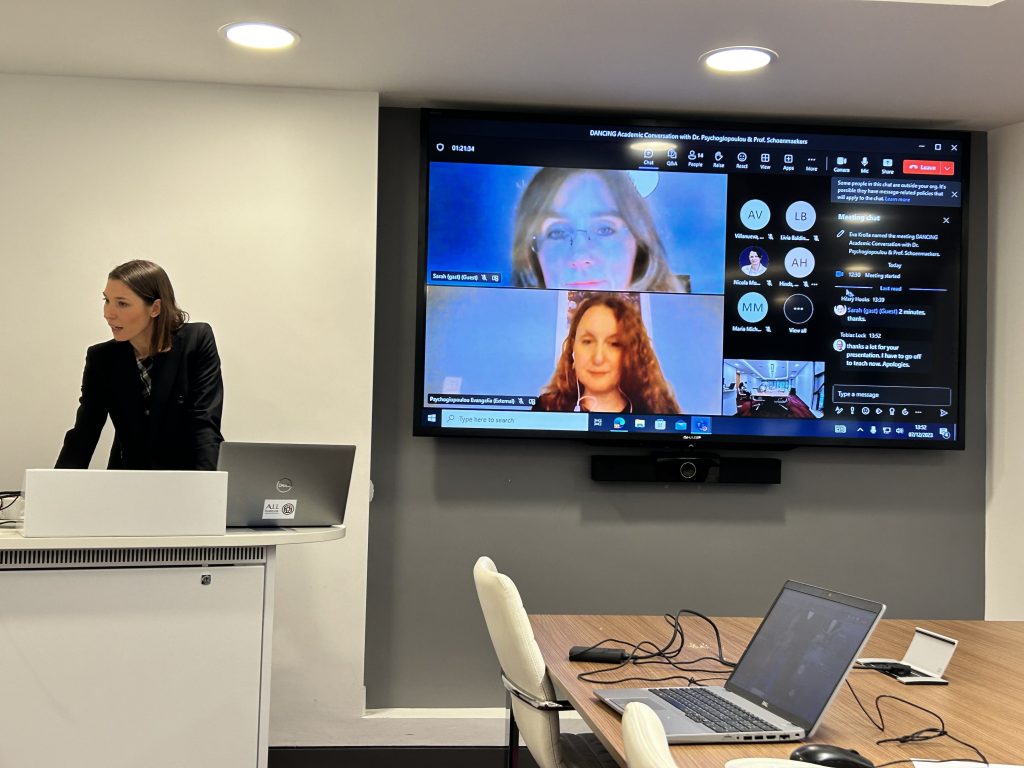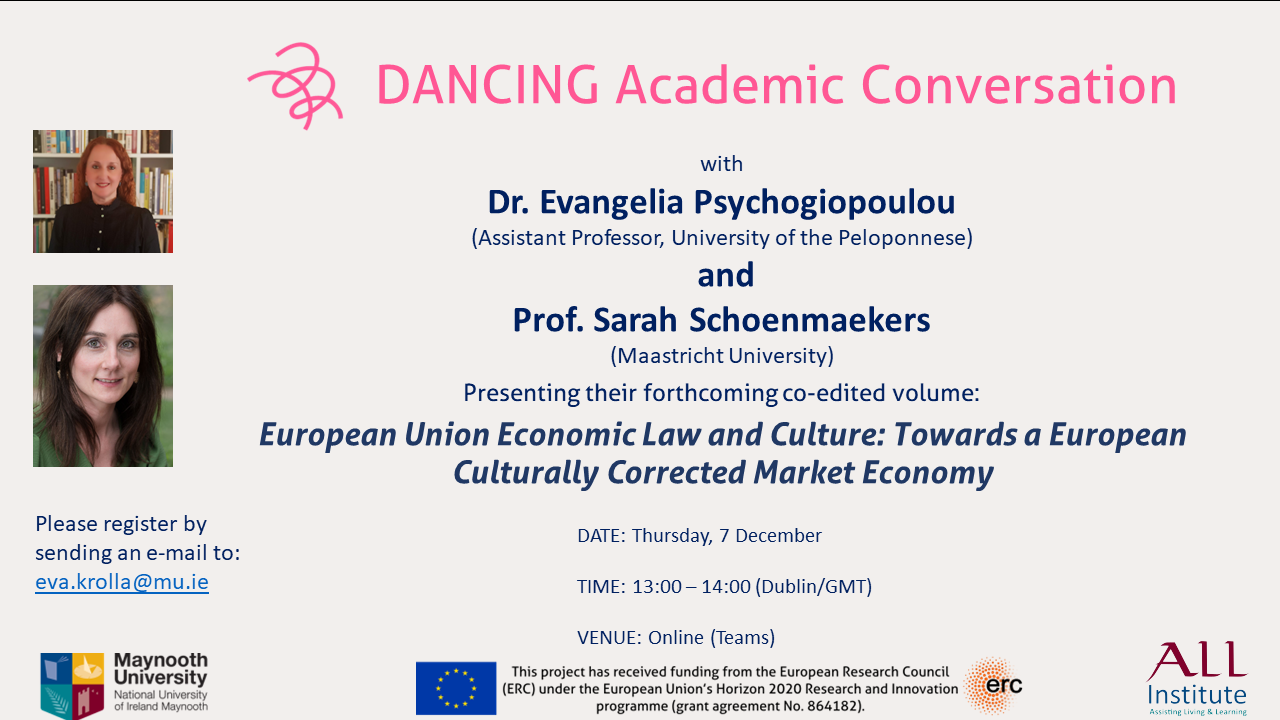
Event: DANCING Academic Conversation with Dr. Evangelia Psychogiopoulou and Prof. Sarah Schoenmaekers
7th December 2023
Venue: Online Event
DANCING Academic Conversation

On 7th December 2023 the DANCING team hosted the second edition of their series DANCING Academic Conversations and welcomed Dr. Evangelia Psychogiopoulou from the University of the Peloponnese (Greece) and Prof. Sarah Schoenmaekers from Maastricht University (The Netherlands) for the presentation of their forthcoming co-edited volume ‘European Union Economic Law and Culture: Towards a European Culturally Corrected Market Economy’ (Edward Elgar).
Dr. Evangelia Psychogiopoulou is Assistant Professor in EU Policies and Institutions at the Department of Political Science and International Relations, University of the Peloponnese, senior research fellow at the Hellenic Foundation for European and Foreign Policy (ELIAMEP) and a lawyer. Evangelia has conducted research for the EU institutions, and she has participated in several collaborative research projects funded by the EU as scientific coordinator or task leader. Her main areas of research are EU law and governance, EU digital policies, EU cultural policy, EU fundamental rights and judicial dialogue in Europe.

Prof. Sarah Schoenmaekers is endowed Professor of EU Law at Open Universiteit (The Netherlands), Associate Professor of EU Law at Maastricht University (The Netherlands) and Professor of Construction Law at Hasselt University (Belgium).
The co-editors jointly introduced the volume and the questions addressed therein by their collaborators. Overarching are questions on which place culture holds in the European Union (EU) edifice and the long-standing concerns regarding the extent to which the Union’s economic policies can accommodate and embrace national (and regional) cultural preferences and whether (or not) there remains room for national (and regional) cultural policy-making in light of the Union’s preeminent economic focus. Thus, this book aims to provide fresh insight into the ways in which culture interconnects with and is treated by EU economic law and policy and considers the relevant nature, scope and extent of the competences of the EU and its Member States in the field of culture. In doing so, the book seeks to advance our understanding of the Union as a cultural market economy and to determine whether there is a need (and leeway) to adopt measures and strategies aimed at ‘cultural correction’.

Event Flyer



